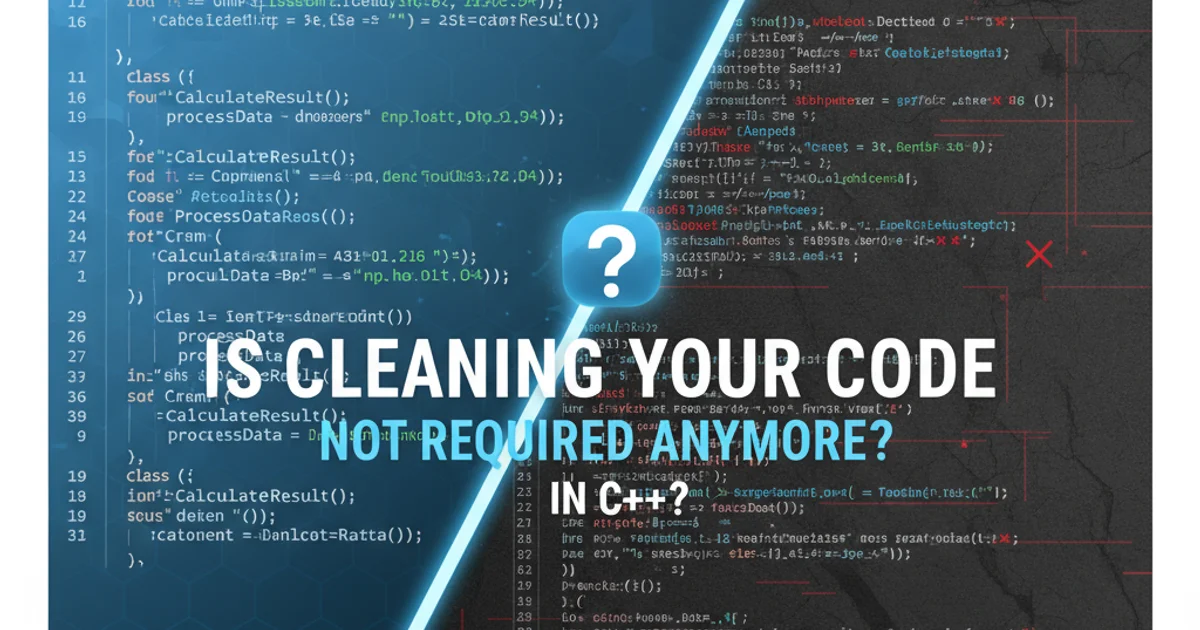what is the usage of "~>" in cocoapods
Categories:
Understanding the ~> Operator in Cocoapods Podfiles

Explore the ~> (optimistic operator) in Cocoapods Podfiles, its impact on dependency management, and how it ensures stable yet up-to-date library versions for your iOS projects.
When managing dependencies in iOS projects using Cocoapods, you'll frequently encounter the ~> operator in your Podfile. This seemingly small symbol plays a crucial role in how your project's libraries are updated, balancing the need for stability with the desire for new features and bug fixes. Understanding its behavior is key to effective dependency management, preventing unexpected build issues, and ensuring your project remains robust.
What is the ~> (Optimistic) Operator?
The ~> operator, often referred to as the "optimistic operator" or "pessimistic operator" (depending on your perspective), specifies a version range for a pod. It allows Cocoapods to update a dependency to newer versions within a defined boundary, but not beyond it. This approach helps maintain a balance between getting the latest improvements and avoiding breaking changes that might come with major version bumps.
pod 'AFNetworking', '~> 4.0'
Example of using the ~> operator in a Podfile
In the example above, ~> 4.0 means Cocoapods will install any version of AFNetworking that is greater than or equal to 4.0 but less than 5.0. This includes 4.0.0, 4.0.1, 4.1.0, 4.9.9, etc., but it will not install 5.0.0 or any subsequent 5.x version. The rule is based on the last component specified in the version number.
flowchart TD
A[Pod 'AFNetworking', '~> 4.0'] --> B{Current Installed Version}
B -->|No Version| C[Install Latest 4.x.x (e.g., 4.0.0)]
B -->|Version 4.x.y| D{Newer 4.x.z Available?}
D -->|Yes| E[Update to Latest 4.x.z]
D -->|No| F[Keep Current 4.x.y]
B -->|Version 5.x.y| G[Error: Version 5.x.y is outside '~> 4.0' range]
C --> H[Project Uses 4.x.x]
E --> H
F --> HHow Cocoapods interprets the ~> 4.0 version constraint
Understanding Version Specificity
The behavior of ~> depends on the specificity of the version number you provide. Let's look at a few common scenarios:
# pod 'Library', '~> 1.2.3'
# This means >= 1.2.3 and < 1.3.0
# pod 'Library', '~> 1.2'
# This means >= 1.2.0 and < 2.0.0
# pod 'Library', '~> 1'
# This means >= 1.0.0 and < 2.0.0
# pod 'Library', '~> 0.5.1'
# This means >= 0.5.1 and < 0.6.0
Different ~> version specifications and their implications
As you can see, the operator locks the second-to-last specified component. If you specify ~> 1.2.3, it locks the 2 (minor version), allowing patch updates. If you specify ~> 1.2, it locks the 1 (major version), allowing minor and patch updates. If you specify ~> 1, it also locks the 1 (major version), allowing minor and patch updates within that major version.
~> X.Y (e.g., ~> 4.0) is a good balance. It allows you to receive minor updates and bug fixes without automatically pulling in potentially breaking changes from a new major version. If you need more stability, ~> X.Y.Z (e.g., ~> 4.0.1) is more restrictive, only allowing patch updates.Impact on Podfile.lock
The Podfile.lock file plays a critical role in ensuring consistent builds across different environments and over time. When you run pod install, Cocoapods resolves the dependencies based on your Podfile's constraints and records the exact versions of each pod in Podfile.lock. Subsequent pod install commands will use these locked versions, even if newer versions are available within the ~> range, unless you explicitly run pod update.
sequenceDiagram
participant DevA as Developer A
participant Podfile as Podfile
participant PodfileLock as Podfile.lock
participant Cocoapods as Cocoapods
DevA->>Podfile: Adds `pod 'LibA', '~> 1.0'`
DevA->>Cocoapods: `pod install`
Cocoapods->>Podfile: Reads constraints
Cocoapods->>Cocoapods: Resolves to `LibA 1.0.5` (latest < 2.0)
Cocoapods->>PodfileLock: Writes `LibA (1.0.5)`
DevA->>DevA: Commits Podfile & Podfile.lock
Note over DevA,Cocoapods: Later, LibA 1.1.0 is released
participant DevB as Developer B
DevB->>Cocoapods: `pod install` (cloned repo)
Cocoapods->>PodfileLock: Reads `LibA (1.0.5)`
Cocoapods->>Cocoapods: Installs `LibA 1.0.5`
Note over DevB,Cocoapods: Ensures consistent versions
DevB->>Cocoapods: `pod update LibA`
Cocoapods->>Podfile: Reads `~> 1.0`
Cocoapods->>Cocoapods: Resolves to `LibA 1.1.0` (latest < 2.0)
Cocoapods->>PodfileLock: Updates `LibA (1.1.0)`
Note over DevB,Cocoapods: Updates within optimistic rangeInteraction between Podfile, Podfile.lock, and pod install/pod update
Podfile.lock to version control. This ensures that everyone working on the project, and your CI/CD pipeline, uses the exact same versions of all dependencies, preventing "works on my machine" issues.Alternatives to ~>
While ~> is widely used, Cocoapods offers other ways to specify versions, each with its own use case:
# Exact version
pod 'AFNetworking', '4.0.1'
# Greater than or equal to
pod 'AFNetworking', '>= 4.0'
# Greater than or equal to AND less than
pod 'AFNetworking', '>= 4.0', '< 5.0'
# No version specified (installs latest available)
pod 'AFNetworking'
Other version specification options in Cocoapods
Choosing the right version specification depends on your project's needs for stability versus the desire for the absolute latest features. For most applications, ~> provides a good balance, allowing for minor updates without major version breakage.